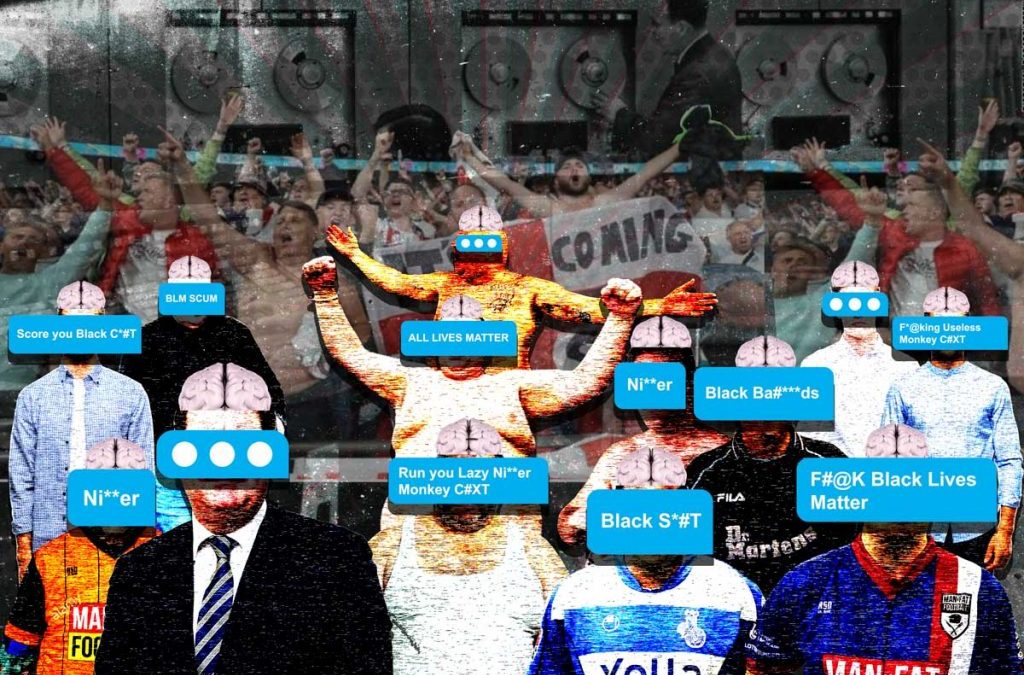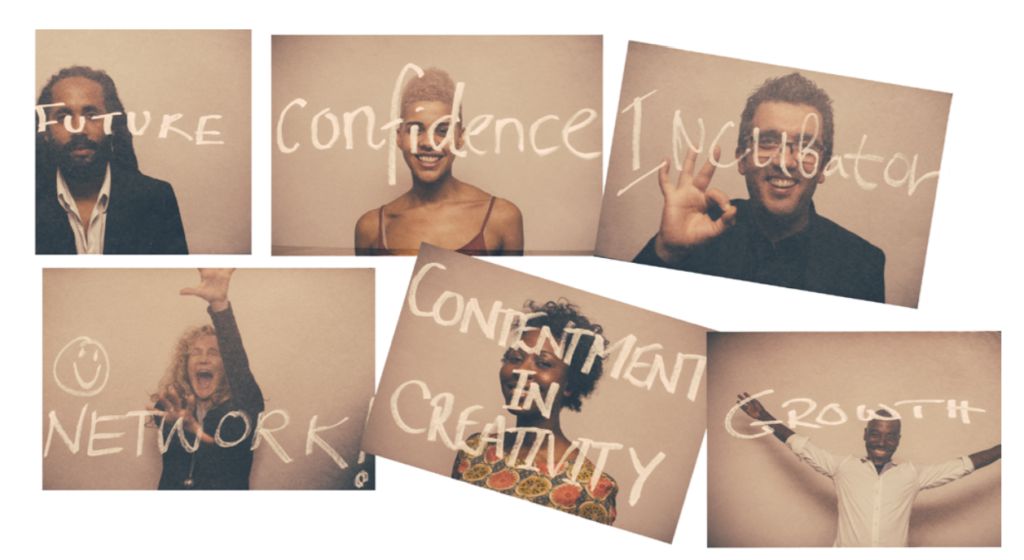We can punish fans who racially abuse Black players. We can kick them off social media, ban them from football matches, sack them, fine them. But we cannot move society towards greater tolerance through punitive actions alone. Nor can we completely silence racist speech. As things are currently structured, it will inevitably find expression somewhere.
Over a decade ago I shared some personal stories from my childhood which illustrate how racist ideas of Black inferiority and white supremacy are endemic.
I am in the school library (aged 15) talking to Martin about football. I say how ‘crap’ the England team is. Martin responds: ‘What have Black people ever contributed to us?’ I know what he’s asking. Any answer I give is to save face. (Pele? Michael Jackson?) I don’t question his view that Black people have not contributed – it is true that we have contributed nothing of worth, otherwise, surely, I would have been taught about it? My trust in the British education system is absolute.
The weekend before that conversation, this happened:
I am at home alone engrossed in England playing Scotland. In the final minute, Scotland scores a winner. The whistle blows and I feel sick. My cousin walks in and she’s shocked that I’m crying. ‘Don’t you know those England fans would tear you limb from limb if they met you on the street. Don’t cry for England, Kevin.’ Now I sob. The game is lost and in an instant she has ripped apart what fragile identity I was holding onto. She has said what I had always felt: I don’t belong.
This sense of not fully belonging is at the heart of the present-day experience of Black football fans. We want to belong, and we trust that we can. We emotionally invest in being fans, but the additional pressure felt by many Black supporters as Rashford, Sancho and Saka took their penalties was a different and separate experience from white supporters. In a visceral way, they were representing us, the Black community; they were shooting to win a football match, but also for our collective sense of belonging. The rejection that followed, even if only by a few white fans, inevitably felt to the players and many Black fans like a rejection by the country.
Our belonging is tenuous because it is conditional on performing, on not stepping out of line from the expectations set by society. When the unwritten rules are broken, the connection you thought you had with the world around you breaks with it. I considered Martin to be my friend at school, but his ability on the one hand to accept me, but to then completely reject me when I criticised the England team, was emotionally jarring.
I spent many years dissociating myself from my passion for football. For a long time, the only way I could enjoy a match was by not committing myself emotionally to the outcome. I knew the sense of tribalism that football evoked and was fearful of the racism and rejection that accompanied it.
Only now can I watch a match – and commit emotionally to my hoped-for outcome – without this fear. This freedom comes from remembering that racism, while being an individual act, is cultivated by society.
With this perspective, the hurt I experienced at Martin’s rejection – and from the fans after the Euro 2020 final – can be felt but without being undermined by it. I am able to see him (them) not only as a beneficiary of the system by virtue of being white but also as a product of the system. We had both absorbed the same message: one of Black inferiority. Despite out-achieving him academically, in sport and in music he could crush me with a single question. No matter how much I achieved, he had an ace card through his sense of innate superiority and belonging. It was never an explicit message, but we both understood it. We absorbed it through the education system, it was embedded by the media, and then spread through the population at large.
This does not excuse what Martin said, or what a few racist England fans did after the Euro 2020 finals, but it frees me from the emotional rollercoaster of the experience. This may be the seed from which a longer-term solution can grow.
So, returning to my question: do we punish or ‘de-radicalise’ racists in football? We certainly need to recalibrate our response. While messages of support for players are vital in providing succour in response to these highly emotionally charged experiences, punitive action, no matter how satisfying it might feel in the short term, only exacerbates the problem in the long term if not delivered hand-in-hand with rehabilitation and re-education.




